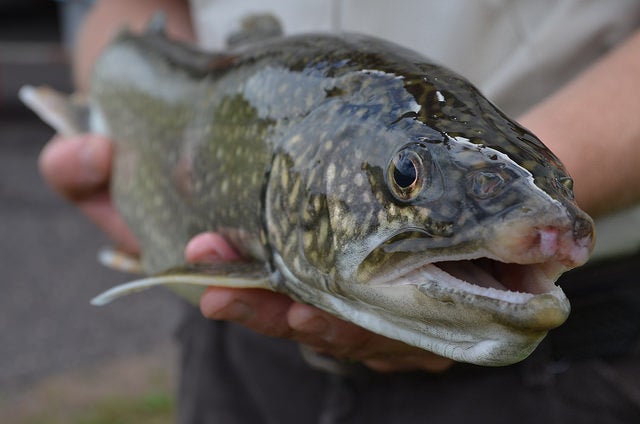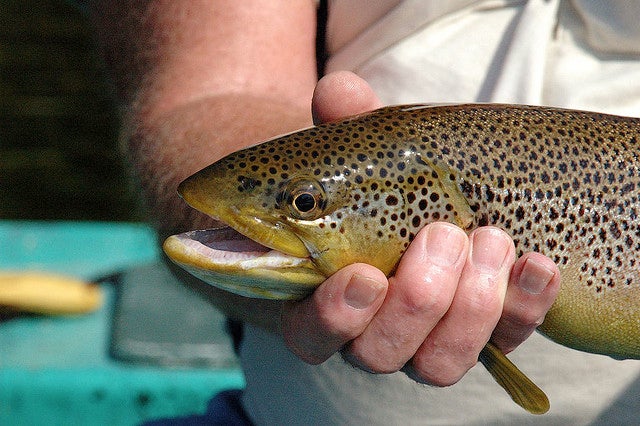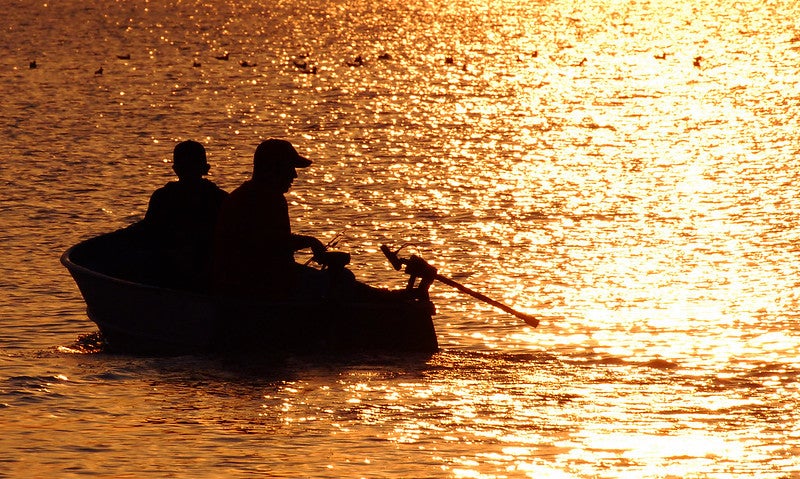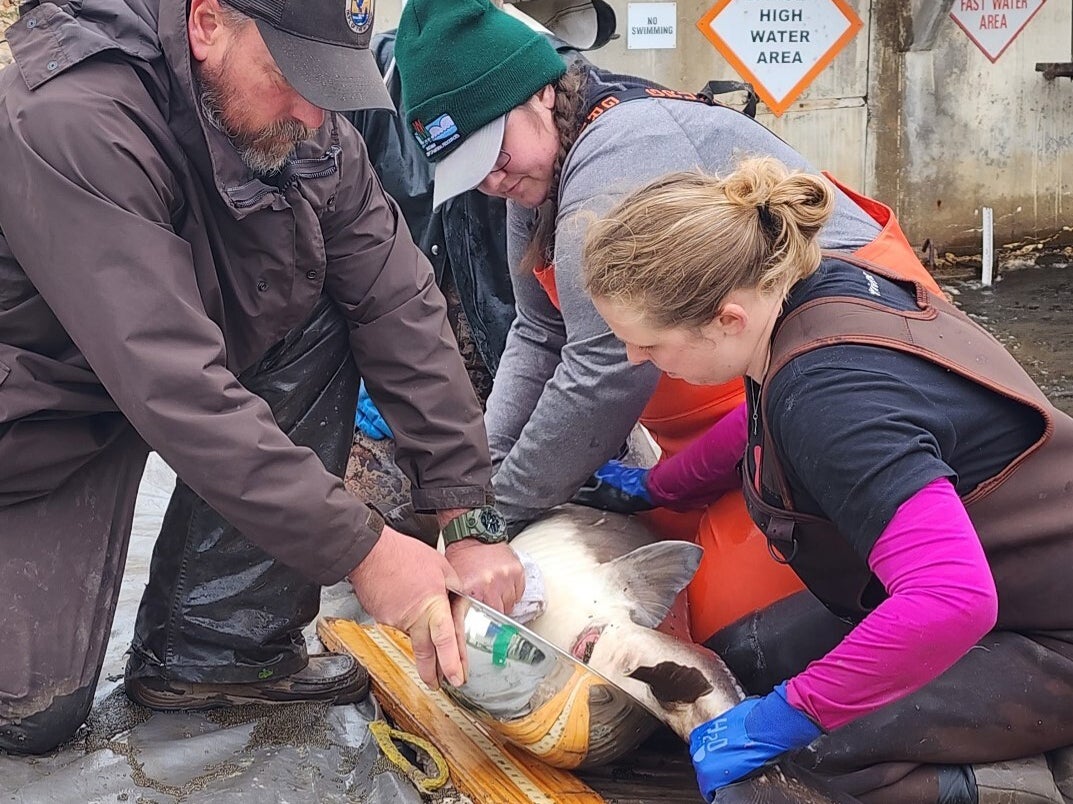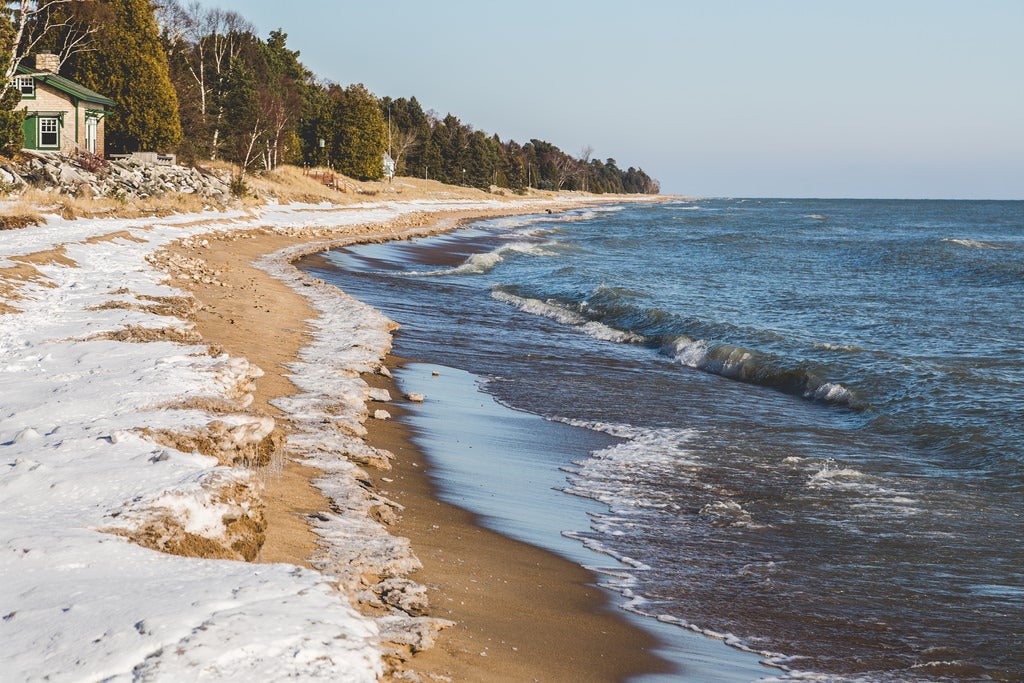Lake trout numbers have been declining in Lake Superior in the last decade, meaning that limited takes are in store for commercial, tribal and sport fishermen in the upcoming season.
A 2005 agreement between the state and two Lake Superior tribes set that year’s harvest at 136,000. That number reportedly fell to 64,000 last year, and the Department of Natural Resources expects it to be 50,000 for the 2015 fishing season.
“We’re trying to reduce harvest to allow that graph to start to climb again as far as lake trout numbers,” said DNR Lake Superior Fisheries Supervisor Terry Margenau.*
Stay informed on the latest news
Sign up for WPR’s email newsletter.
Red Cliff tribal biologist Chad Abel said that a lower quota hurts everyone, but hopes that reduced harvests will allow lake trout populations to recover.
“You hope it allows the population time to rebound and that we can see higher numbers in the coming year,” said Abel.
Abel said he is optimistic about lake trout numbers.
“There is hope that there’s going to be a swift turnaround, especially with the number of fish we think are age 4, 5 and 6 right now. I’m hoping this reduction will be a short-term thing,” said Abel.
Sports fishermen harvest an average of 15,000 lake trout in Lake Superior each year, according to the DNR. Sport fisherman Bruce Prentice of Ashland said that some anglers may be frustrated by quotas, but that everyone needs to work together.
“If there’s a way that sport fishermen can be part of the solution, then that’s something we need to do something about,” he said
Prentice is also chairman for the Ashland County chapter of the Wisconsin Conservation Congress, which advises the DNR and Natural Resources Board on resource management. Prentice said fisheries management is important to sport fishermen.
“We’re looking at economically making sure that the vendors that are there catering to the sporting industry, that they’re able to continue throughout the years,” said Prentice.
The DNR’s Margenau said the state has limited commercial fishing to 10 licensees in Lake Superior. Abel said the Red Cliff Band of Lake Superior Chippewa also sets a maximum of 10 for bigger boats and around 30 licenses for tribal fishermen using smaller vessels.
“Everybody is happy when there’s more fish for everybody,” said Abel. “The fishing industry is a very important economic factor to the tribe and community.”
The 2005 Lake Superior Fishing Agreement between the Wisconsin DNR, Red Cliff and Bad River Bands of Lake Superior Chippewa expires next year. Margenau said they are working on a new agreement, which they hope to have in place by the 2015 fishing season.
*Correction: The original version of the story attributed this quote to Jared Myers, a Department of Natural Resources biologist. The quote was actually said by DNR Lake Superior Fisheries Supervisor Terry Margenau.
Wisconsin Public Radio, © Copyright 2024, Board of Regents of the University of Wisconsin System and Wisconsin Educational Communications Board.

